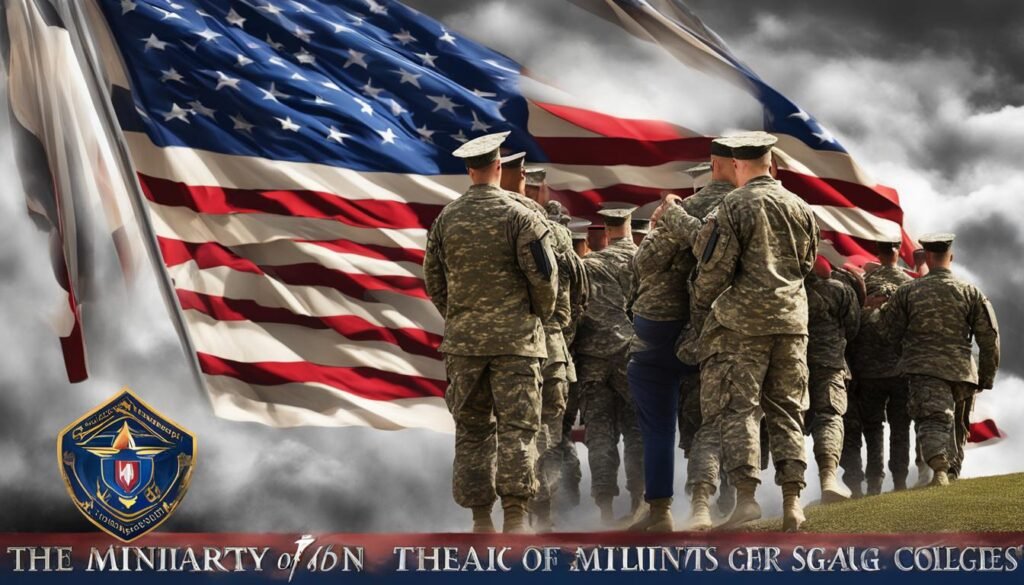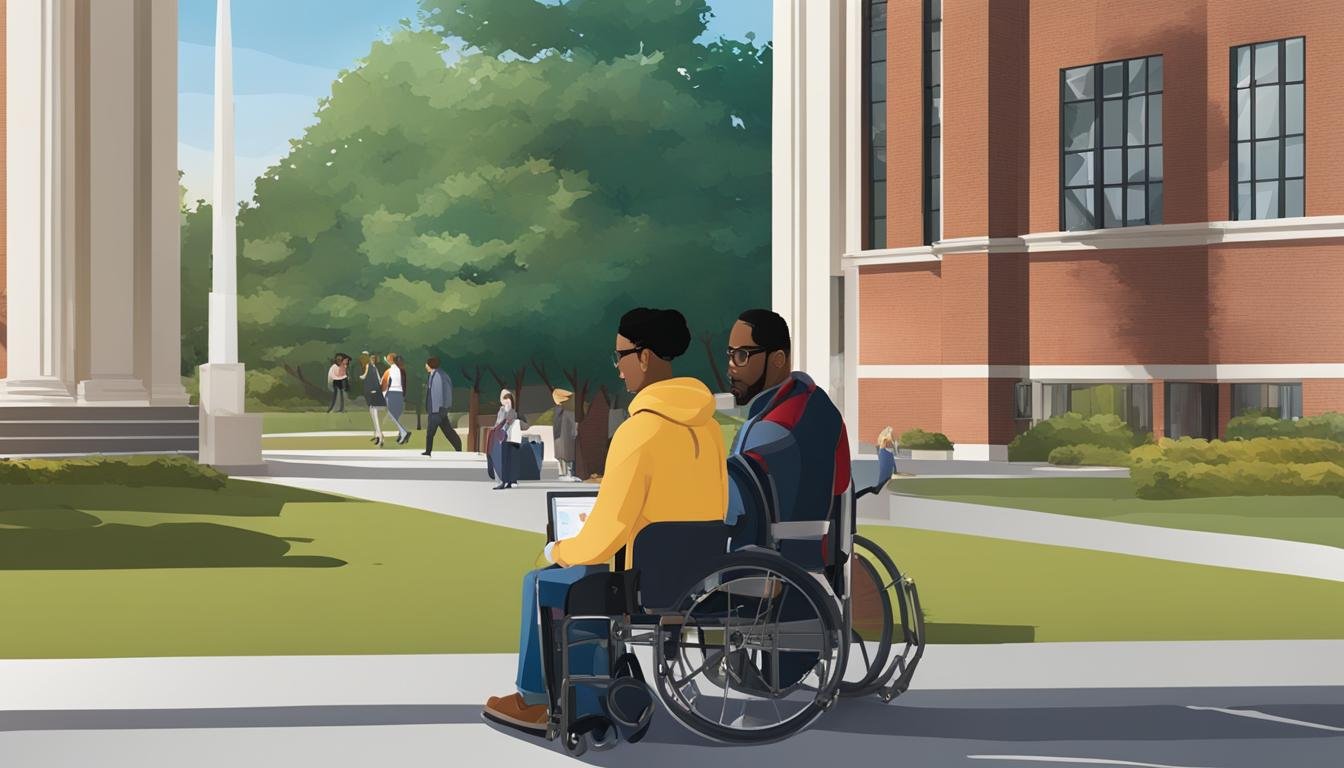Military service academies, such as the U.S. Military Academy at West Point, the U.S. Naval Academy, the U.S. Air Force Academy, the U.S. Coast Guard Academy, and the U.S. Merchant Marine Academy, offer an outstanding education and prepare graduates for both military and civilian success. These academies provide practical experience, world-class education in science and engineering, and a range of major options. Additionally, graduates from these academies usually receive a commission as officers in their respective branches and have excellent career outcomes. They perform well on measures of educational and career success, including high retention and graduation rates. The median early-career salaries for graduates of these academies are higher than those of many top colleges and universities, making them among the most elite institutions in American higher education.
Key Takeaways:
- Military service academies offer a comprehensive education and prepare graduates for both military and civilian success.
- Graduates from military service academies usually receive a commission as officers in their respective branches.
- These academies have high retention and graduation rates, indicating their commitment to educational and career success.
- The median early-career salaries for graduates of military service academies are higher than many top colleges and universities.
- Military service academies are among the most elite institutions in American higher education.
Benefits of Joining the Military After College Graduation

Joining the military after college graduation offers several significant benefits. One of the main advantages is the opportunity to enter the military as an officer. This position carries with it higher salaries, better housing allowances, and more career advancement opportunities compared to enlisted ranks. As an officer, you’ll have the chance to lead and manage teams, making important decisions that have a direct impact on missions and operations. This level of responsibility and leadership experience can greatly enhance your future civilian career prospects and set you apart from other job applicants.
Another notable advantage is the College Loan Repayment Program offered by the military. This program provides financial assistance to help graduates repay their student loans. By taking advantage of this program, you can alleviate the burden of student debt and start your post-college life with a solid financial foundation. Depending on the terms and conditions, the military can reimburse up to $65,000 of your student loan debt, allowing you to focus on building your career without the stress of overwhelming financial obligations.
Joining the military after college also offers job security, comprehensive healthcare coverage, and various education programs that can further enhance your skills and knowledge. The military is known for providing excellent healthcare benefits to its members and their families, ensuring that you and your loved ones are taken care of. Additionally, the military invests in the continued education and professional development of its personnel, offering opportunities for advanced degrees and specialized training in fields such as engineering, technology, and healthcare.
Overall, joining the military after college graduation can provide you with a promising career path, financial stability, and valuable life experiences. Whether you decide to make a long-term commitment or use it as a stepping stone to other opportunities, the military can offer you a unique and rewarding journey filled with personal growth and professional development.
How to Join the Military After College
If you’re considering joining the military after college, there are a few steps you need to follow. The first decision you’ll make is which military branch you want to join. Each branch has its own unique functions and resources, so take the time to research and determine which one aligns with your skills and goals.
Once you’ve chosen a branch, it’s important to check the prerequisites required to qualify. These may include age limits, citizenship, and meeting physical and academic requirements. Make sure you fulfill all the necessary criteria before proceeding to the next step.
To start the application process, reach out to a military recruiter at a military entrance processing station (MEPS). The recruiter will guide you through the background screening process and administer an aptitude test to assess your suitability for military service.
After completing the application process, you’ll undergo basic training if you’re enlisting as a service member or officer training if you’re pursuing an officer position. Officer training duration varies depending on the branch but generally focuses on honing academic and leadership skills. Upon completion of your training, you’ll be commissioned as an officer in the military, utilizing your college degree and securing your rank.



